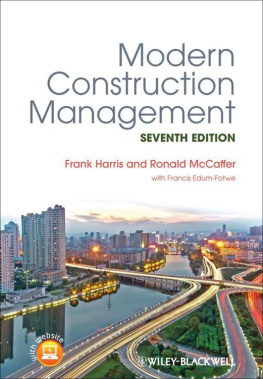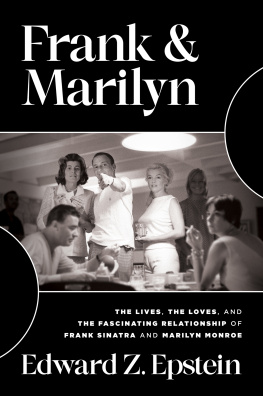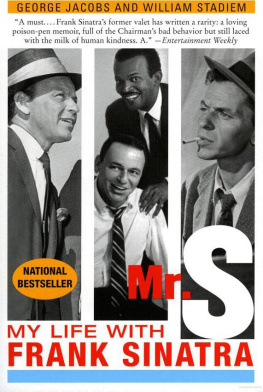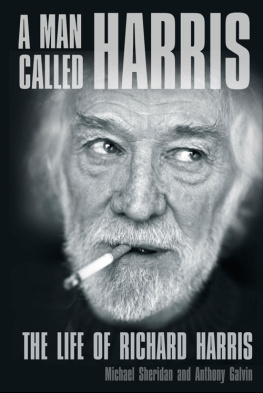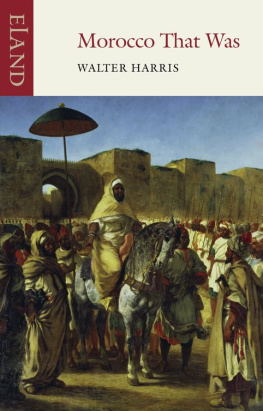Frank Harris - My life and loves Vol. 4
Here you can read online Frank Harris - My life and loves Vol. 4 full text of the book (entire story) in english for free. Download pdf and epub, get meaning, cover and reviews about this ebook. genre: Romance novel. Description of the work, (preface) as well as reviews are available. Best literature library LitArk.com created for fans of good reading and offers a wide selection of genres:
Romance novel
Science fiction
Adventure
Detective
Science
History
Home and family
Prose
Art
Politics
Computer
Non-fiction
Religion
Business
Children
Humor
Choose a favorite category and find really read worthwhile books. Enjoy immersion in the world of imagination, feel the emotions of the characters or learn something new for yourself, make an fascinating discovery.

- Book:My life and loves Vol. 4
- Author:
- Genre:
- Rating:5 / 5
- Favourites:Add to favourites
- Your mark:
- 100
- 1
- 2
- 3
- 4
- 5
My life and loves Vol. 4: summary, description and annotation
We offer to read an annotation, description, summary or preface (depends on what the author of the book "My life and loves Vol. 4" wrote himself). If you haven't found the necessary information about the book — write in the comments, we will try to find it.
My life and loves Vol. 4 — read online for free the complete book (whole text) full work
Below is the text of the book, divided by pages. System saving the place of the last page read, allows you to conveniently read the book "My life and loves Vol. 4" online for free, without having to search again every time where you left off. Put a bookmark, and you can go to the page where you finished reading at any time.
Font size:
Interval:
Bookmark:
Frank Harris
My life and loves Vol. 4
CHAPTER I
It was the conflict with my committee in Hackney over Parnell and his treatment by Gladstone that brought me to the parting of the ways. The Venezuela affair, the Damien incident, and my dislike of a lazy, aimless life, however luxurious, helped to decide me. Was I to continue to fool about London and waste myself on little committees, or should I give up my candidature for the House of Commons in Hackney and go abroad and try to become a writer? A long spell of bad weather in November, unceasing fog and rain, determined me. I packed up and went off to the Riviera. In a week I was installed at the Hotel of Cap d'Antibes with Mr. Sella as host, who gave me two excellent rooms on the first floor. I found that Grant Allen and his wife were staying in the hotel. I had known him for some time, but now I met him more intimately and soon confided to him that I had made a new start and was going to try to write some short stories.
Every night he and his wife came up to my sitting-room after dinner and I told them the stories before I wrote them. I told them the story of The Sheriff and His Partner, of Monies, the Matador and A Modern Idyll on three successive nights. They praised them all enthusiastically, and when they went away I sat down to write out the stories, one story each night. When I had finished all three I sent them off to the Fortnightly Review to be set up, and asked for proofs to be returned to me at once. I remember I spent two nights on the Modern Idyll, and afterwards worked on the proofs, while Mantes came perfectly on the first attempt. I was so excited with hope and fear that I went to Monte Carlo to while away the time till I could hope to get my stories back in print.
In a week or so I returned and went to my room and read the three stories. I saw that the story of The Sheriff and His Partner was spoilt by letting the facts dominate; real life is seldom artistic; I thought Monies, the Matador very much the better. I remember saying to myself that I had done what I intended, given the Spaniard his real place as an heroic man of action. I confess I thought it was better than the Carmen of Prosper Merimee, which, up to that time, I had regarded as the best Spanish story. But I preferred A Modem Idyll to either of the other two. There was in it a Sophoclean irony that appealed to me intensely. When the Deacon insisted on paying in order to keep the clergyman who was his wife's lover in the same town, I was hugely delighted: I felt sure it was good work.
I gave the three stories to Grant Allen and he agreed with me that Monies, the Matador and A Modern Idyll were much better than The Sheriff and His Partner. I began to work on other short stories. A fortnight later Grant Allen came and told me that he had a letter from Meredith about my stories. He had sent Monies and A Modern Idyll to him and asked his opinion on them.
We both regarded Meredith as the highest literary judge in England at that time. Meredith did not care so much for A Modern Idyll: "The story was too subacid," he thought, but he praised Mantes to the skies. To my delight, he said it was better than Carmen in every way; I had given even the bulls individuality, he said, whereas Merimee had dismissed them as brutes and had been content to give life to the one woman. Meredith ended his criticism with the words, "If there is any hand in England can do better than Mantes, I don't know it."
I have always thought of that letter as my knighting. And I really cared nothing afterwards for anyone's opinion of my work. Curiously enough, when I sat down to write a longer story, Elder Conklin, I found it very difficult, and the worst of it was that I didn't seem able to judge it properly. I suddenly remembered that Horace tells us that he couldn't judge his poetry for nine years-novem annas, and I found later, when a book of my stories was printed, that I could not judge them even to my own satisfaction till five or six years had elapsed after they were written. Really, an author is like a mother: her latest baby seems to her the most perfect, just as his latest story or play seems to the author the best he has done.
I sent out my first stories to three or four English magazines; although I was the editor of the Fortnightly Review, they were every one returned to me with thanks: only one editor even asked me to send him some other work, telling me that he didn't think that the English public cared for stories about bull-fighting. This amused me, so I turned A Modern Idyll and Monies, the Matador into my best French and sent them off to the Revue des Deux Mondes in Paris. Ferdinand Brunetiere, at that time editor of the Revue, was called "The Door of the French Academy." He wrote me immediately a charming letter, saying that it was the first time that he had ever received two masterpieces in one letter, but he went on to tell me that my French was faulty and that he hoped I would let him correct the worst passages. I was only too delighted. As soon as the stories appeared in the Revue des Deux Mondes, they were praised in the English press, and at once the same editors who had rejected them wrote, asking me for some more stories. In this way I was brought to realize how low is the standard of criticism in England. The English editors always regarded me as an American, and had pleasure in trying to put me in what they thought was my place.
Talking one day to Meredith of the low standard of English literary criticism, he turned on me and said, "It is so true: I have never once been criticized in England at all fairly."
"Good God," I cried, "not even your poetry?"
"Well," he said, "my poetry has been treated a little better than my prose.
Your ordinary editor feels that he knows nothing about poetry because he doesn't care for it, so he leaves it for an expert to judge; but he thinks he can judge a story as well as any one living, and so he has no hesitancy in telling me that my forte is not story-writing, and that Richard Fever el is not to his taste."
"I'll repair the omission," I said, "for I look upon you as only second to the very greatest, to my heroes: Shakespeare, Goethe, and Cervantes."
"Strange," he said, turning away, perhaps to hide his emotion, "that is what I have sometimes thought of myself, but I never hoped to hear it said."
"I shall say it and loudly," I declared. And so I tried my best to get Matthew Arnold and Browning to write the truth about Meredith, but they both made excuses. Browning told me that "praise of the living always seems tainted."
Why, I couldn't imagine, but my scheme fell through. Yet, think of what Meredith did in superb poetry, and of Richard Feverel, that great love idyll in prose; and how difficult it is to win mastery in both arts, or, indeed, in either.
I often think of William Watson's noble epigram:
Forget not, brother singer, that though Prose Can never be too truthful nor too wise, Song is not Truth-not Wisdom-but the Rose Upon Truth's lips, the light in Wisdom's eyes!
Here I cannot but recall a funny incident which occurred a little earlier. I had gone up to Paris and had my usual sitting-room in the Hotel Meurice; one day when I came in I found George Moore waiting for me. He naturally had picked up the little stories which were lying in print on the table and had read them.
"Where did you get these stories, Harris?" he asked. "I don't care for the Mantes; it is too romantic; I hate bulls and bullfighting; but The Sheriff and His Partner is very good, and A Modern Idyll is a masterpiece. I might have done it myself. Who is the writer? Whoever he is, he ought to be proud of himself."
"I wrote 'em all, Moore," I said.
"You!" he cried in astonishment. "Where did you learn to write stories?"
"They are my first fruits," I replied, laughingly.
Font size:
Interval:
Bookmark:
Similar books «My life and loves Vol. 4»
Look at similar books to My life and loves Vol. 4. We have selected literature similar in name and meaning in the hope of providing readers with more options to find new, interesting, not yet read works.
Discussion, reviews of the book My life and loves Vol. 4 and just readers' own opinions. Leave your comments, write what you think about the work, its meaning or the main characters. Specify what exactly you liked and what you didn't like, and why you think so.

